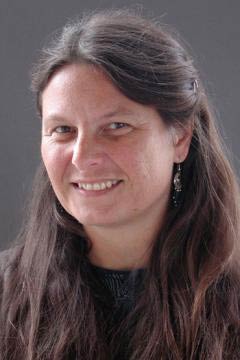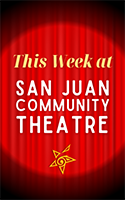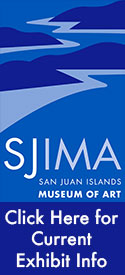Ocean Acidification In Washinton Waters
Posted June 18, 2014 at 5:33 am by Tim Dustrude
UW Oceanographer To Discuss Ocean Acidification In Washinton Waters June 25 at San Juan Island Grange

Dr. Jan Newton – Contributed photo
Learn how scientists are mapping chemical changes resulting from climate change in Puget Sound and other inland waterways in Washington State during an illustrated talk by University Washington oceanographer, Dr. Jan Newton, scheduled 7 p.m., Wednesday June 25 in the San Juan Island Grange hall in Friday Harbor.
“Ocean Acidification in Washington Waters” is the second free program in The Climate Action Imperative: Understanding Impacts & Making Choices, a summer/fall speakers’ series featuring eight experts on Climate Change—from oceanographers to botanists, biologists to meteorologists. The series provides a current look at climate change and what actions are warranted by individuals as well as by our state and nation. For information about Newton’s program and the series call 360-378-2240, ext. 2227 or 360-378-6690 or visit our web sites at www.nps.gov/sajh or www.madrona.org.
Fundamental changes in seawater chemistry are occurring throughout the world’s oceans, according to the National Oceanic and Atmospheric Administration (NOAA). Since the beginning of the industrial revolution, the release of carbon dioxide (CO2) from humankind’s industrial and agricultural activities has increased the amount of CO2 in the atmosphere. The ocean absorbs about a quarter of the CO2 we release into the atmosphere every year, so as atmospheric CO2 levels increase, so do the levels in the ocean.
Initially, many scientists focused on the benefits of the ocean removing this greenhouse gas from the atmosphere. However, decades of ocean observations now show that there is also a downside — the CO2 absorbed by the ocean is changing the chemistry of the seawater, a process called OCEAN ACIDIFICATION.
Newton is a Principal Oceanographer with the Applied Physics Laboratory of the University of Washington and affiliate faculty with the UW School of Oceanography. A biological oceanographer (Ph.D. 1989), her research has focused on a systems view of marine ecosystems (estuarine, coastal, and oceanic), assessing human and climate forcing on the characteristics and productivity of these systems.
Currently, she is the co-Director of the Washington Ocean Acidification Center located in the University of Washington College of the Environment. There she co-leads studies on ocean acidification in Washington waters, affects on local species, and efforts to forecast its risk.
As with all talks in the series, Newton’s presentation will be followed by a discussion.
Series co-sponsors are: San Juan Island National Historical Park, Madrona Institute, San Juan Islands Conservation District, The League of Women Voters of the San Juans, San Juan Island Library, San Juan Nature Institute, San Juan County Marine Resources Committee, Northwest Straits Foundation, Stewardship Network of the San Juan Islands, Washington State University Extension Service, San Juan Island Grange #966 and the Agricultural Resources Committee of the San Juan Islands.
The next scheduled speaker is Chad Kruger, director of the Center for Sustaining Agriculture and Natural Resources at Washington State University. The program is scheduled at 7 p.m. Thursday July 10 in the Friday Harbor Brickworks
You can support the San Juan Update by doing business with our loyal advertisers, and by making a one-time contribution or a recurring donation.
Categories: Around Here










No comments yet. Be the first!
By submitting a comment you grant the San Juan Update a perpetual license to reproduce your words and name/web site in attribution. Inappropriate, irrelevant and contentious comments may not be published at an admin's discretion. Your email is used for verification purposes only, it will never be shared.